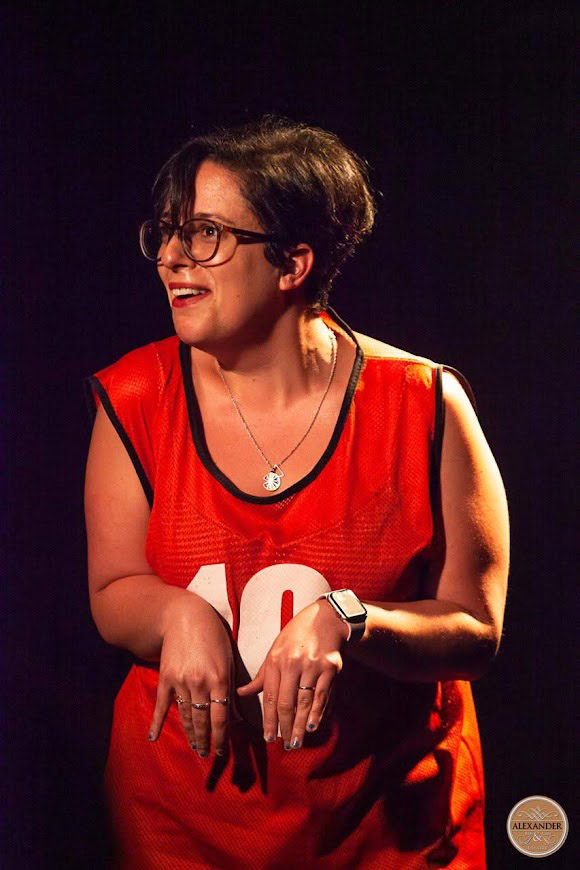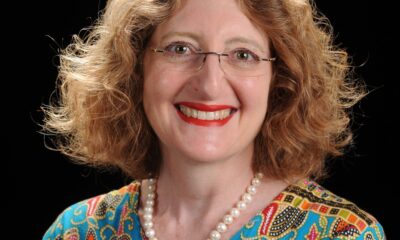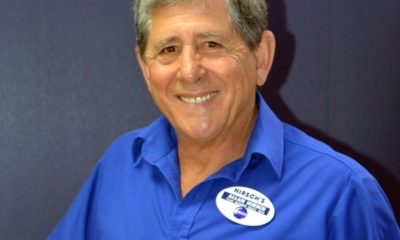
Lifestyle

Lose the learning labels, embrace the individual, say experts
Master’s graduates, performing artists, business owners – if the people behind these success stories had allowed themselves to be defined by their learning difficulties, they may never have reached their limitless potential. That’s why discarding labels and supporting our children is so important when it comes to navigating barriers to learning.
“There’s the young man who at just 23 is a pilot instructor, not bad when anxiety and apraxia were marked difficulties; another who runs an upmarket game lodge; a student who secured his actuarial candidacy with a large corporate before he even finished matric; the dancer who defies all who say the hard-of-hearing won’t manage professional repertoires; the young girl with profound dyslexia graduating cum laude to teach; the lad whose engineering work controls OR Tambo airspace using software and management. The list goes on.” So says Alison Scott, the principal of remedial school Bellavista, speaking of the countless Bellavista students who go on to fly after matric.
“That’s not to say that the journey through high school has been easy,” she says. “Yet, with goals, support, an ability to sit with being uncomfortable, self-confidence, strategies, and a deep knowledge of who you are and a heap of grit, you can’t but succeed.” That’s why putting in place the correct support structures as early as possible is so important.
“Learning difficulties or barriers to learning are impairments which create a barrier to a specific form of learning but don’t alter one’s intelligence,” says Johannesburg-based educational psychologist Lee-Anne Lewis. Though they may not learn in the same way or at the same pace as their peers, these children shouldn’t feel limited or defined by their barriers. With the guidance of professionals, they learn how to process information in alternative ways to achieve their full potential. “The emotional well-being of children and adolescents with barriers to learning is also imperative for their current and future success,” Lewis says.
“A child will achieve only as high as we set our expectations,” says Ilana Gerschlowitz, the author of Saving my Sons – A Journey with Autism and the founding director of The Star Academy for Autism and Catch Up Kids, which caters for the needs of students with ADHD (Attention deficit hyperactivity disorder) or learning challenges.
“Sadly, students are largely defined and boxed in by their labels. When a child is restricted by a label and there are no expectations – or the wrong expectations – it will be challenging for that child to have the self-confidence and motivation to succeed.” That’s why seeing beyond a child’s learning challenges is so important – both in the school and home environment.
Scott echoes this thinking. “At Bellavista, we hold at the very core of our view of the child that every human being has the propensity for learning and no limits can or should be applied, internally or externally,” she says. “A child may have a diagnosis which powerfully directs evidence-based interventions, but no child has a label that suggests they are defined by that description.”
That’s why the school is careful about descriptions. For example, Michael may live with dyslexia, but he’s not dyslexic. Far more important than a child’s diagnosis is who the child actually is – a unique individual. “At school, we don’t allow that the child references their learning difficulty in any fashion other than to demonstrate self-awareness and a commitment to growth,” Scott says.
In an open letter on Facebook, Nicola Date recently spoke of her own learning challenges and how the support of her parents, who always encouraged her individualism, helped her to reach her potential. For Date, now a 32-year-old senior copywriter who has also built a successful arts and entertainment career, being placed in a “small class” at a mainstream school in Grade 5 was the start of a significant decline.
“We were marginalised and not given the same education as our more competent buddies,” she recalls. “Being in the ‘small class’ affected my education, social standing – I was bullied – and my desire to learn. I spent the rest of my school career feeling limited, stunted, and not good enough to achieve. However, I found my solace in art and drama, and discovered my academic abilities in my later university years.”
Both Scott and Gerschlowitz argue against placing children in “special” classes in a mainstream school environment. “I would challenge the premise of needing to separate children out based on their learning differences as a start point,” says Scott. “An inclusive school environment will adjust every structure it has to afford every child belonging. It would be important for learning difficulties, as it is for any point of our human difference, that a culture of tolerance, empathy, and genuine inclusivity is cultivated so that no child is ostracised or made to feel less capable by the system or by their peers.”
Gerschlowitz is a strong advocate for mainstream schooling for children with learning challenges. “As soon as there’s a child with a difference, our schools tend to highlight the deficit and refer to remedial or other therapies,” she says. “Instead, so much could be achieved if certain accommodations in the mainstream classroom were made. If mainstream teachers are paired with the correct special-education programme and receive the necessary training, the student with a label can succeed in the mainstream classroom.”
Joshua Poyurs, 28, who recently attained his Master’s in research and clinical psychology, managed to make this transition. Poyurs was born with brain damage on the right side of the brain. This affected movement in the left side of the body, mathematical ability, and resulted in epilepsy, speech disorders, dyspraxia – which affects movement and co-ordination – and poor sensory integration.
With years of intensive physiotherapy from the age of three months, as well as occupational therapy and speech therapy each day, Poyurs transitioned to mainstream schooling in Grade 2. With the support of teachers and classmates, Poyurs began an academic path and ultimately matriculated with four distinctions.
Yet, it was his parents who played the biggest part in his success. “My dad taught me that knowledge is invaluable, and that being on a mission to discover what you don’t know is exciting,” he says. “My mom is a hero in my eyes. I don’t know how she had the strength to do what she did. She did physio with me, never gave up on me, and wouldn’t let my anxiety break me.
“I think as a kid when you’re different like this, you know it, but you don’t understand it, you just feel different. It can be disheartening when you start to mainstream and realise how far behind you are. But as a parent, you can teach your child that there are no rules about what you can become.”










